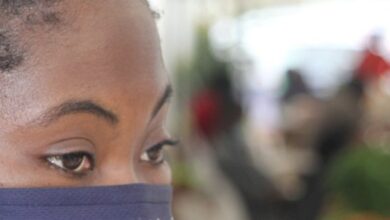It is the classic age-old battle of local communities versus a large agribusiness. A thousand families in Chilonga, one of the country’s poorest areas, are about to lose their ancestral land to a project that officials say is key to rebuilding Zimbabwe’s dairy industry.
The government has ordered evictions from the Chilonga area of Chiredzi to make way for a large Lucerne grass project to be run by Dendairy, one of the country’s biggest dairy firms, according to a new government notice.
Statutory Instrument 50 of 2021 gazetted on Friday designates 12,940 hectares of communal land for the production of Lucerne grass for dairy production. It orders the eviction of locals, who have strongly resisted the project.
“The area of land described hereunder in terms of the Schedule shall be set aside with effect from the date of publication of this notice for the purpose of Lucerne production. Any person occupying or using the land specified in the schedule, otherwise than by virtue of a right held in terms of the Mines and Minerals Act, is ordered to depart permanently with all of his or her property from the said land by the date of publication of this notice, unless he or she acquires rights of use or occupation to the said land in terms of section (9)(1) of the Communal Land Act,” says the notice.
This SI means that the gazetted area of land is no longer part of the Chiredzi communal land.
Locals oppose the project, and community leaders protested openly during a tour of the area by Vice President Constantino Chiwenga and top government officials in June last year.
“We have tried all possible means to show them that we are not interested in their project but they insisted,” community leader Livison Chikutu says.
Lowveld production
But government insists that the Chilonga project is necessary, and that it is part of its plan to increase farm output across the Lowveld by drawing irrigation water from Tugwi-Mukosi, the country’s largest inland dam.
The dam, according to government, is meant to turn the Lowveld into one of Zimbabwe’s most productive farming regions. New projects in the region include Project Kilimanjaro, a joint initiative involving the government, banks and the two major sugar producers to open up 4 000 hectares of new sugar cane fields.
Zimbabwe’s milk production was 76.7 million litres in 2020, falling 4% from 2019. At peak, Zimbabwe produced 260 million litres in 1990. Last year, the dairy herd stood at 38 000; of these, 12 000 were in milk, producing an average of 14 litres per cow per day, according to data from the Zimbabwe Association of Dairy Farmers. In 1990, Zimbabwe had close to 120,000 dairy cows.
The Ministry of Agriculture plans to grow milk production to 200 million litres by 2030, an ambitious target given current output.
According to government and Dendairy, the Chiredzi project – which also includes the acquisition of heifers – is part of a plan to rebuild the industry.
The Lucerne grass, which is drought resistant, will also feed livestock in the dry Chikombedzi, Majijimba and Malisanga areas of Chiredzi, where livestock has been decimated by drought and lack of pastures, according to local government officials.
But the Chilonga community leaders say consultations failed to bring about an agreement. Villagers fear they will be left with nothing after being evicted from their ancestral land, Chikuti said.
After failing to convince locals to support the project, including offering to engage small-scale farmers as outgrowers, the government has now used the law.
Dendairy: the plan
Lucerne grass is prized fodder for dairy cows, and is known to help increase milk output. Dendairy plans to grow it to feed both the local and export markets.
Kwekwe-based Dendairy, formed in 2004, is owned by the Coetzee family, with Scandinavian private equity firm Spear Capital holding a minority stake in the company. Spear bought 27% of Dendairy in 2015.
Daryl Archibald, Dendairy MD, has previously said his company had set aside US$10 million for compensation of displaced communities and to build support infrastructure for the community and the project. This includes water canals to irrigate at least 300 hectares for the community and grass outgrowers, plus a communal Lucerne feedlot for community livestock.
However, according to community leader Chikutu, this was rejected by locals, who fear similar displacement to that suffered by communities at Chisumbanje, displaced by the Green Fuel ethanol project, and Mukosi villagers resettled at arid Chingwizi to make way for the dam.
[ALSO READ: Dairibord targets market domination with planned Dendairy deal]
Dendairy is currently in talks with Dairibord for a possible merger. Going into those negotiations, Dendairy has been looking beyond processing to invest more in raw milk production by investing directly in dairy farming. Part of this plan includes the Chiredzi project. The company has also recently stepped up imports of heifers.
Dairibord accounts for 38% of the national milk intake, and a merger with Dendairy would dwarf number three rival Prodairy, which takes in 20% of the country’s milk

